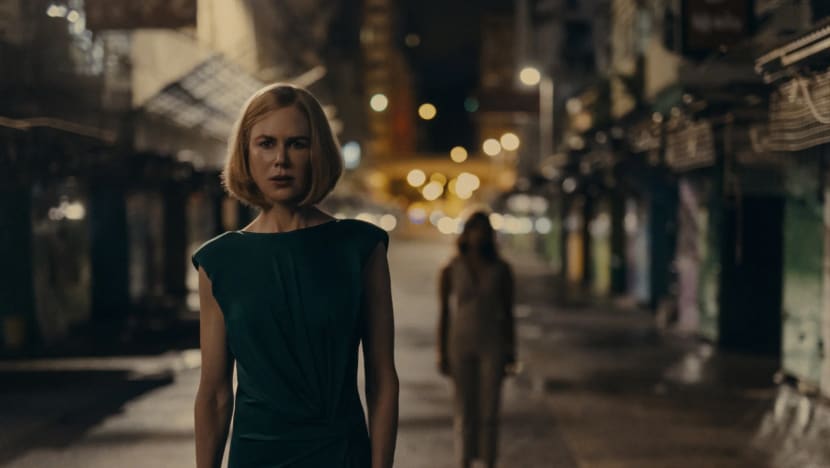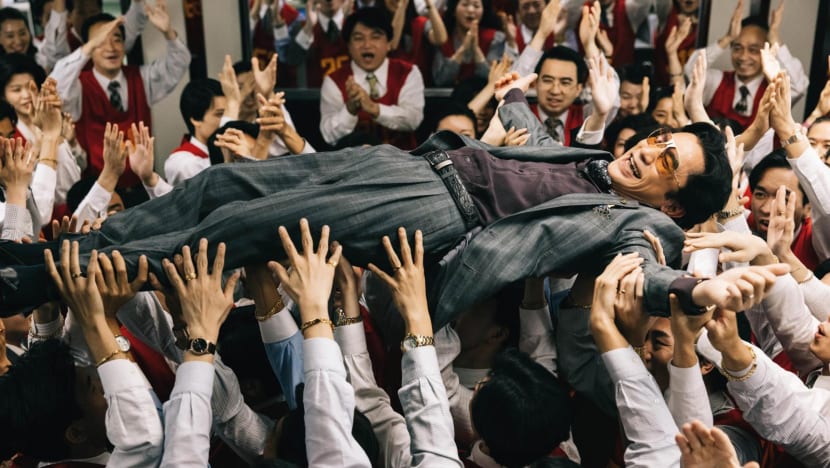Commentary: Why Hong Kong’s cinema has gone quiet
Amazon’s Nicole Kidman show Expats is set in Hong Kong and noted filmmaker Wong Kar Wai has a new series. But the creative sector is struggling to revive the glory days of its iconic films and pop culture, says the Financial Times’ Chan Ho-him.


This audio is generated by an AI tool.
HONG KONG: The mere fact that the most discussed television show about Hong Kong this year is a US production starring Nicole Kidman speaks volumes. Amazon Prime’s Expats, which contains scenes recreating the financial hub’s 2014 mass protests, is not even available to viewers living in the Chinese territory, sparking censorship concerns.
And Blossoms Shanghai, the newly released series from the Hong Kong filmmaker Wong Kar Wai, who made his mark with Chungking Express and In The Mood For Love, is largely a mainland Chinese production that premiered on state TV.
What happened to the days of iconic Hong Kong films and pop culture influence, when the likes of Chow Yun Fat and Leslie Cheung appeared on local and international screens?
There have been some decent domestic films in recent months. I enjoyed The Goldfinger, a thriller loosely based on one of the financial hub’s largest corporate scandals set in the glitzy 1980s. Yet, the buzz it generated is far from that of many of its Hollywood counterparts.

Cantopop - a music genre sung in Cantonese originating from Hong Kong - has also struggled to expand its audience recently. Spotify’s Top 200 charts for Hong Kong users saw the proportion of Cantopop songs dip from almost 80 per cent in mid-2022 to about half by the end of 2023 - though still higher than before 2019.
Meanwhile, the rapidly expanding Asian film, TV and pop culture markets in South Korea, Japan and Thailand have outshone Hong Kong, and mainland China has been fostering its own new generation of superstars.
BYGONE GOLDEN ERA OF HONG KONG FILMS AND CANTOPOP
There’s debate over Hong Kong becoming less international as it grows more dependent on Beijing, and Xi Jinping’s political clampdown in the wake of the 2019 protests hardly helps its global cultural influence.
“Where is the uniqueness that we can hold our heads high and offer to the world?” Tenky Tin, a veteran film producer and actor, asked me this month.
The golden era of Hong Kong films and Cantopop was in the 1980s and 1990s, when directors such as Wong Kar Wai and actors like Tony Leung and Jackie Chan took to Western theatres while superstars such as Leslie Cheung and Anita Mui led the region’s pop culture.
Last year, the Christmas holiday slump for Hong Kong films sent a worrying signal, with a 20-year box office low. One reason is a surge in Hongkongers travelling again after three years of COVID-19. Border reopening also means more choices for pop concerts outside the city.
CHINA’S LONG SHADOW ON CREATIVITY?
But with the sweeping national security law imposed by Beijing in 2020 that curtailed civic freedoms and silenced dissent and another new security law in the brewing, the long shadow on Hong Kong’s creativity remains.
Domestic films have been barred from public screening locally under a 2021 film censorship law. Over the past months, two of Hong Kong’s most prominent lyricists have moved abroad.
And earlier this month, a leading performing arts academy in Hong Kong abruptly cancelled a scheduled drama performance of the Nobel literature prizewinner Dario Fo’s Accidental Death Of An Anarchist, citing “legal risks”.
Even Amazon’s Expats was attacked by Beijing loyalists over the support it received from the Hong Kong government during its filming in the city. Officials defended their decision of allowing Kidman to skirt the city’s tough COVID-19 quarantine rules in 2021.
But Dominic Lee, a pro-Beijing lawmaker, said, “There is no way that this reflects on Hong Kong positively,” referring to scenes of the 2014 democracy movement recreated in the series.
In comments that almost conjure up a parallel universe, top Hong Kong officials repeatedly rejected concerns that censorship has restricted creative freedom. Meanwhile, young filmmakers and the domestic creative industry were striving to “keep their momentum”, said Kenny Ng, a film academic at Hong Kong Baptist University.
A new code is needed for Hong Kong’s emerging generation of filmmakers and pop stars. But uncertainties lingering over the city’s future cast doubt on what that code should and can be.














